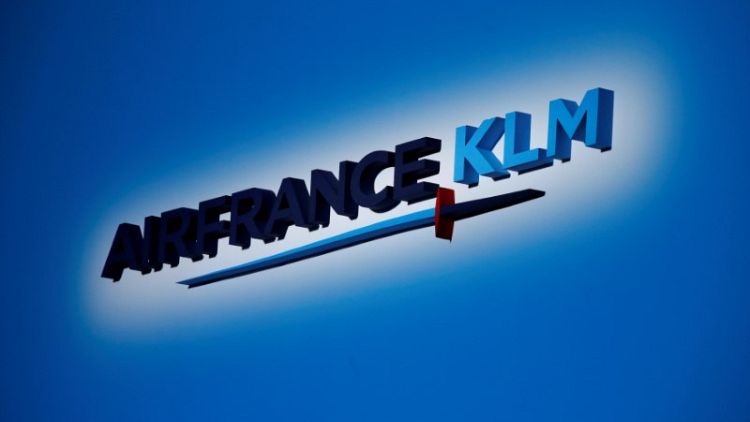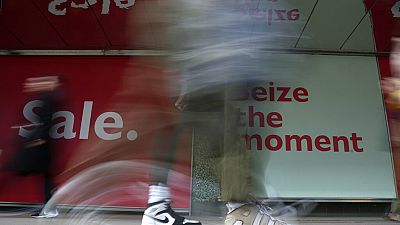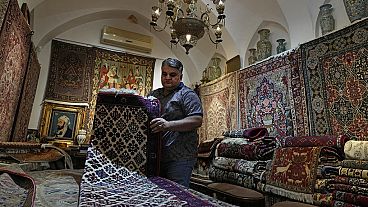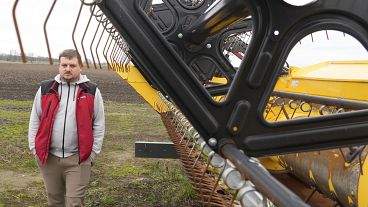By Toby Sterling and Tim Hepher
AMSTERDAM/PARIS (Reuters) - When Air France's new Canadian chief executive met Dutch politicians in The Hague on Feb. 15, he unknowingly set in motion a new chapter in European aviation nationalism.
Dutch Finance Minister Wopke Hoekstra had summoned Ben Smith to secure assurances that Air France would keep key routes open at Amsterdam's Schiphol Airport and KLM would retain the partial independence it has enjoyed since the airlines merged in 2004.
Smith, who has told investors he planned to improve integration and cut costs at Air France-KLM, kept his answers brief and non-committal, beating a quick retreat, a person familiar with the matter said.
When the Dutch government felt its demands were not being addressed, it chose to act, the person familiar with the matter and another source said, leading to Tuesday's announcement that it was buying a stake in Air France-KLM to match the French state and boost its influence over a group which has seen KLM profits dwarf those of Air France.
"Buying this stake ensures we have a seat at the table," Hoekstra said, adding his government paid 680 million euros (581 million pounds) to buy 12.7 percent "to defend Dutch national interests."
The government later said it had reached 14 percent, almost matching France's 14.3 percent holding.
It was a stunning change of tack, 15 years after Air France and KLM became the first European national airlines to merge.
French Finance Minister Bruno Le Maire called the move "incomprehensible" and a French ministry official said the Netherlands had acted like "a corporate raider."
Investors slashed 12 percent from Air France-KLM's value, fearing a stalemate between state shareholders.
Tuesday's lurch towards government intervention marks a radical shift in the aviation policy of the Netherlands, which was the first country to sign a liberalising Open Skies deal with the United States in 1992.
"I don't recall anything like this. If anything governments have been selling stakes in airlines, or at least not investing, to the point where airlines have been going bust," said veteran airlines watcher James Halstead, a partner at Aviation Strategy.
Air France-KLM declined to comment on the closed talks. But the company said in a statement it had been ready to reaffirm commitments to strengthen KLM and its Schiphol hub.
FLYING THE FLAG Fifteen years after the airlines merged, the shaky foundations of one of the industry's landmark mergers highlight the difficulty of carrying out cross-border tie-ups in an industry riven with national pride, politics and protectionism. "Airlines are unique. It is perhaps the only case where the national flag has real relevance to the point of being displayed on the tails," said Giovanni Bisignani, former head of the global industry group International Air Transport Association.
However, the dramatic share-market swoop came as less of a surprise to political analysts who have tracked Dutch centre-right governments since the 2008 financial crisis: the takeover of a major national company like KLM is unthinkable under their watch and the 2004 airline merger grates with ministers now.
Attempts by foreign firms to buy telecommunications company KPN in 2013, postal carrier PostNL in 2016, and paint-maker Akzo Nobel in 2017 all foundered in part on opposition from Prime Minister Mark Rutte's governments.
The Dutch cabinet is preparing a law which would allow any Dutch corporate board to freeze any takeover bid for 250 days.
It is also creating a panel to require government vetting for takeovers in "sensitive" sectors, echoing U.S. practice.
"The public interest must go first," said Lodewijk Asscher, leader of the opposition Labour party, echoing reaction across the Dutch political spectrum.
He said the centre-right government's move was right for the nation's "economics, employment, and sustainability."
France has itself in the past drawn criticism for ambushing the stock market, notably in 2015 when then economy minister Emmanuel Macron ordered a surprise government stake increase in Renault..
CONTROL WORRIES
On top of political sensitivities, analysts say cross-border mergers are particularly tricky because most airlines are also subject to ownership restrictions and international rules tying traffic rights to individual countries. Setting off a wave of consolidation in 2004, Air France and KLM sought to skirt those problems and pacify powerful French unions by granting significant freedom and separate balance sheets for the two carriers. But they left multiple layers of management and chronic labour disputes among French pilots.
The model led to mounting frustration on the Dutch side that KLM was being dragged down financially without real control over the group, which was largely driven by the French, sources said.
In 2018, Air France made operating earnings of 266 million euros, against KLM's 1.07 billion.
A later merger that brought together British Airways, Iberia and Aer Lingus involved a more powerful holding company, IAG, combined with a leaner structure, Halstead said. The industry has learned from that approach but cultural differences also haunted the Franco-Dutch union from the start, even as Dutch bosses abandoned buttermilk for wine in meetings. "The Dutch would come out of a meeting and say that this or that issue has been decided," said Halstead, who closely follows the group. "The French would say it had only been considered."
(Additional reporting by Sudip Kar-Gupta and Laurence Frost in Paris; Editing by Edmund Blair)



